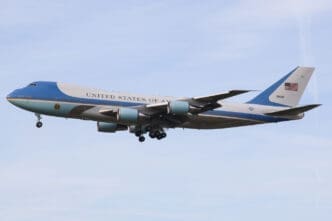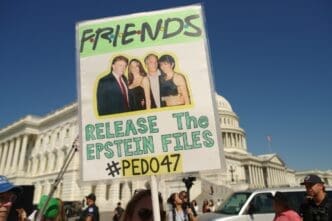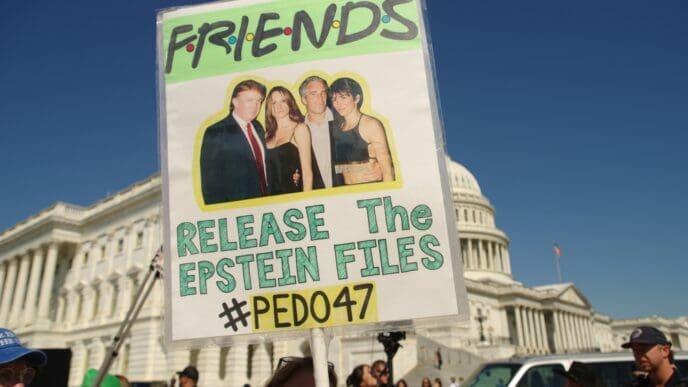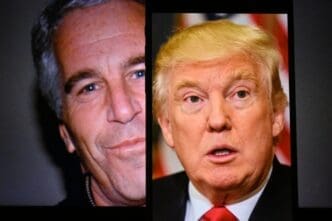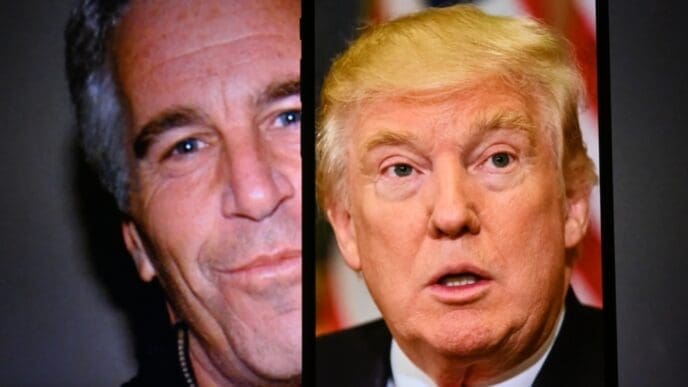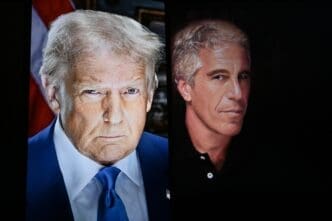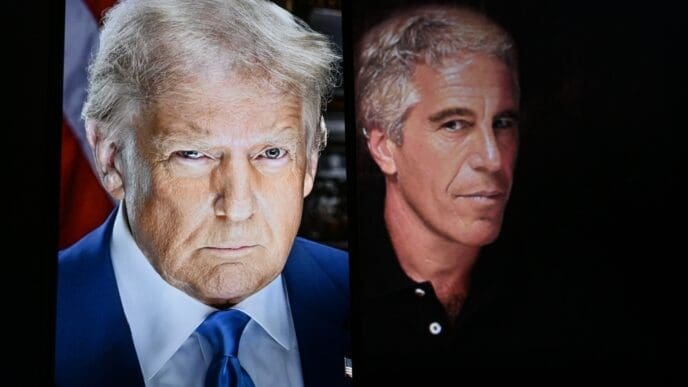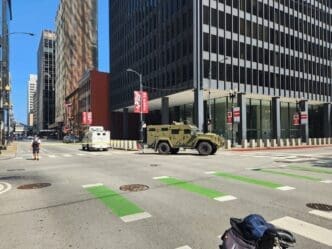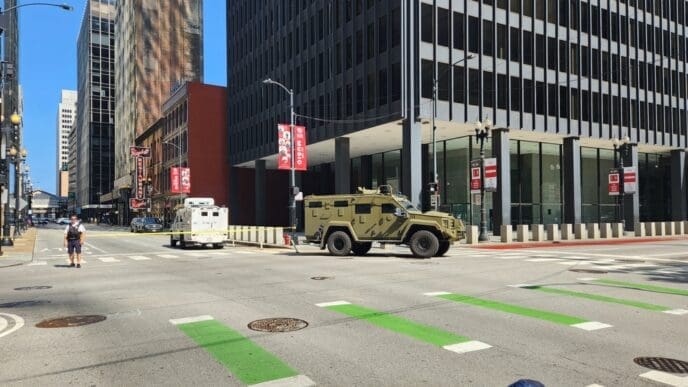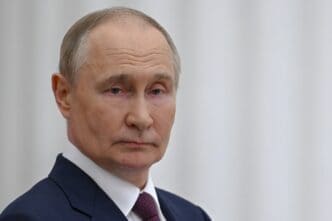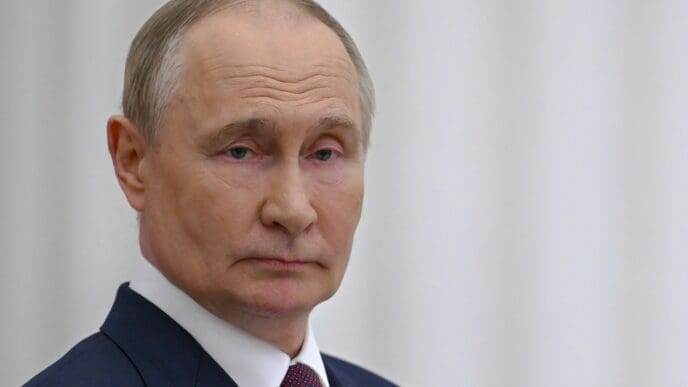President Donald Trump concluded a five-day trip to Scotland by opening a new golf course bearing his name, a visit that intertwined the promotion of his family’s global business empire with commentary on pressing international and domestic political issues. While in Balmedie, Aberdeen, the land of his mother’s birth, President Trump used the platform to address the humanitarian crisis in Gaza and the Jeffrey Epstein affair, all while continuing his long-standing public feud against a nearby wind farm. The trip serves as a potent example of the unique fusion of business, politics, and personal grievances that has come to define his public life.
The Business of the Presidency
The centerpiece of the visit was the ceremonial opening of the new Trump International Golf Links course, where President Trump, flanked by his sons Eric and Donald Jr., cut a red ribbon with golden scissors. This event was not merely a family business affair but a carefully managed media appearance that underscored the deep connection between the Trump brand and his political identity. By engaging in direct promotion of a private commercial enterprise, the trip reignited long-standing debates among ethics watchdogs about the use of the presidential office for personal financial benefit.
These concerns are rooted in the unprecedented nature of a sitting president who retains ownership of a vast international business. Critics frequently point to the U.S. Constitution’s Emoluments Clauses, which are intended to prevent federal officeholders from receiving gifts or profits from foreign governments. While the Scotland trip primarily involved a private Trump property, the high-profile nature of the presidential visit inevitably draws global attention, which can be seen as an invaluable form of marketing for the Trump Organization.
In a notable departure from his typical stance, President Trump offered rare praise for the journalists covering the event, remarking, “Today they’re not fake news. Today they’re wonderful news.” This temporary truce highlighted his satisfaction with the coverage of his golf course, contrasting sharply with his usual adversarial relationship with the press.
Diplomacy and Domestic Issues from the Fairway
Despite the trip’s focus on golf and business, President Trump could not sidestep major political questions that followed him across the Atlantic. He used the opportunity to weigh in on sensitive topics, offering his personal views in a manner that often bypasses traditional diplomatic channels.
Comments on the Gaza Crisis
When asked about the dire humanitarian situation in Gaza, President Trump expressed concern and seemed to diverge from the position of Israeli Prime Minister Benjamin Netanyahu. In response to Netanyahu’s assertion that there is “no starvation in Gaza,” President Trump referenced images from news reports, stating, “I mean, based on television, I would say not particularly because those children look very hungry.” This comment was significant, as it showed a U.S. president publicly questioning an ally’s assessment based on media portrayals, a reflection of his unconventional approach to foreign policy analysis.
Revisiting the Epstein Affair
President Trump also offered a new explanation for why he banned the disgraced financier Jeffrey Epstein from his Mar-a-Lago club in Florida years ago. He claimed the reason was because Epstein “stole people that worked for me.” This account differs from a statement made by a top White House aide just last week, who said Epstein was removed for being a “creep.” The differing explanations add another layer to the public’s continued interest in the past association between the two men.
A Personal Vendetta Against Wind Power
Perhaps the most personal issue for President Trump during his visit was the visible presence of an offshore wind farm, a project he has vehemently opposed for over a decade. The wind turbines, visible from his new golf course, are a source of long-standing frustration for him. He unsuccessfully sued to block their construction in 2013 and was later ordered to pay the Scottish government’s legal fees.
He reiterated his disdain for the renewable energy source, calling the windmills “ugly monsters” and claiming they are “the most expensive form of energy.” President Trump also repeated the scientifically disputed claim that wind turbines cause widespread harm to bird populations, stating, “I restricted windmills in the United States because they also kill all your birds.” This personal grievance has consistently influenced his broader energy policy, which has favored fossil fuels over investments in wind and solar power.
The Scotland trip was a microcosm of the Trump presidency, where the lines between official duties, business promotion, and personal conviction are frequently blurred. By seamlessly transitioning from a golf course ribbon-cutting to commentary on global affairs, the visit provided a clear snapshot of how President Trump has redefined the role of the American head of state, merging it inextricably with his personal and commercial brand.

